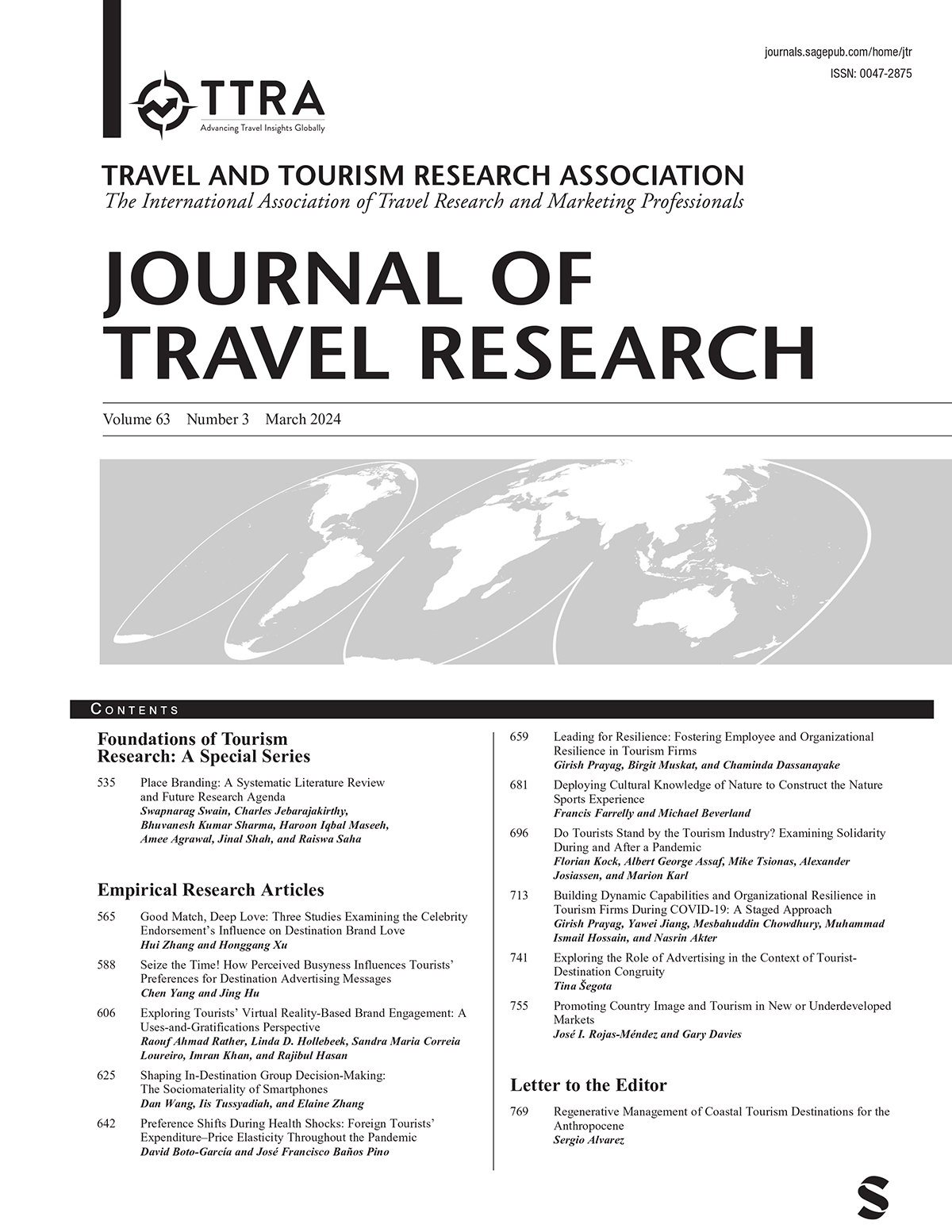良性(恶意)嫉妒与炫耀性旅游消费意愿:自我提升与自我控制的中介作用
IF 8
2区 管理学
Q1 HOSPITALITY, LEISURE, SPORT & TOURISM
引用次数: 0
摘要
虽然旅游研究者已经开始探索嫉妒的行为效应,但关于良性嫉妒和恶意嫉妒对旅游炫耀性消费意愿影响的实证研究有限。本文在整合认知评价理论、补偿理论和自我控制资源理论的基础上,采用两种情境型问卷,运用结构关系分析和中介分析,探讨良性嫉妒和恶意嫉妒对炫耀性旅游消费意愿的影响。结果表明,良性嫉妒可以直接正向影响炫耀性消费意愿,也可以间接正向依赖自我提升动机,从而影响炫耀性消费意愿。然而,恶意嫉妒并不能直接影响炫耀性消费意愿。这种嫉妒需要依靠自我提升的动机产生间接的负面影响,需要依靠弱化的自我控制产生间接但积极的影响。然后讨论了这些发现的重要理论和实践意义。本文章由计算机程序翻译,如有差异,请以英文原文为准。
Benign (Malicious) Envy and Conspicuous Travel Consumption Intention: Mediating Effects of Self-Enhancement and Self-Control
Although tourism researchers have begun to explore the behavioral effects of envy, there has been limited empirical research on the effects of benign and malicious envies on conspicuous consumption intention in tourism. Based on the integration of cognitive appraisal theory, compensation theory, and self-control resource theory, using two scenario-based questionnaires, this paper applies structural relational and mediation analyses to explore the effects of benign and malicious envies on conspicuous travel consumption intention. The results indicate that benign envy can directly positively influence conspicuous consumption intention, and also can indirectly rely on self-enhancement motivation positively, thereby influencing conspicuous consumption intention. However, malicious envy cannot directly influence conspicuous consumption intention. This envy needs to rely on self-enhancement motivation to have an indirect negative influence and rely on weakened self-control to have an indirect but positive influence. The important theoretical and practical implications of these findings are then discussed.
求助全文
通过发布文献求助,成功后即可免费获取论文全文。
去求助
来源期刊

Journal of Travel Research
HOSPITALITY, LEISURE, SPORT & TOURISM-
CiteScore
18.90
自引率
9.00%
发文量
66
期刊介绍:
The Journal of Travel Research (JTR) stands as the preeminent, peer-reviewed research journal dedicated to exploring the intricacies of the travel and tourism industry, encompassing development, management, marketing, economics, and behavior. Offering a wealth of up-to-date, meticulously curated research, JTR serves as an invaluable resource for researchers, educators, and industry professionals alike, shedding light on behavioral trends and management theories within one of the most influential and dynamic sectors. Established in 1961, JTR holds the distinction of being the longest-standing among the world’s top-ranked scholarly journals singularly focused on travel and tourism, underscoring the global significance of this multifaceted industry, both economically and socially.
 求助内容:
求助内容: 应助结果提醒方式:
应助结果提醒方式:


